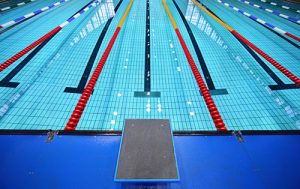 USADA announced today that Isabel Gormley, of Wainscott, N.Y., an athlete in the sport of swimming, has accepted a one-year sanction for committing three Whereabouts Failures within a 12-month period.
USADA announced today that Isabel Gormley, of Wainscott, N.Y., an athlete in the sport of swimming, has accepted a one-year sanction for committing three Whereabouts Failures within a 12-month period.
At the time of the Whereabouts Failures, Gormley, 20, was a member of the USADA Registered Testing Pool (RTP), which consists of a select group of elite athletes subject to certain Whereabouts requirements in order to be located for out-of-competition testing. Within a 12-month period, Gormley accrued three Whereabouts Failures, the first for a Filing Failure on September 11, 2021; the second for a Missed Test on October 24, 2021; and the third for a Missed Test on December 12, 2021.
The accumulation of three Whereabouts Failures within a 12-month period constitutes a rule violation under the USADA Protocol for Olympic and Paralympic Movement Testing, the United States Olympic and Paralympic Committee National Anti-Doping Policy, and the International Swimming Federation Doping Control Rules, all of which have adopted the World Anti-Doping Code. The period of ineligibility for Whereabouts rule violations ranges from one year to two years depending on the athlete’s degree of fault. In this case, USADA determined that a one-year period of ineligibility was appropriate because Gormley’s degree of fault was low.
Gormley’s one-year period of ineligibility began on March 22, 2022, the date her provisional suspension was imposed. In addition, Gormley has been disqualified from all competitive results achieved on and subsequent to December 12, 2021, the date of her third Whereabouts Failure in a 12-month period, including forfeiture of any medals, points, and prizes.
Accurate Whereabouts information is crucial for effective out-of-competition testing, which helps deter and detect doping by enabling no-notice sample collection. This is especially important because some prohibited substances have limited detection windows. In an effort to aid athletes, as well as support team members such as parents and coaches, in understanding the rules applicable to them, USADA provides comprehensive instruction on its website on the testing process and prohibited substances, how to file and update athlete Whereabouts, how to obtain permission to use a necessary medication, and the risks and dangers of taking supplements, as well as performance-enhancing and recreational drugs.
In addition, USADA manages a drug reference hotline, Global Drug Reference Online (www.GlobalDRO.com), conducts educational sessions with National Governing Bodies and their athletes, and distributes a multitude of educational materials, such as an easy-reference wallet card with examples of prohibited and permitted substances, a supplement guide, a nutrition guide, an clean sport handbook, and periodic alerts and advisories.
USADA makes available a number of ways to report the abuse of performance-enhancing drugs in sport in an effort to protect clean athletes and promote clean competition. Any tip can be reported using the USADA Play Clean Tip Center, by text at 87232 (“USADA”), by email at playclean@USADA.org, by phone at 1-877-Play Clean (1-877-752-9253) or by mail.
USADA is responsible for the testing and results management process for athletes in the U.S. Olympic and Paralympic Movement and is equally dedicated to preserving the integrity of sport through research initiatives and educational programs.
For more information or media inquiries, click here.



